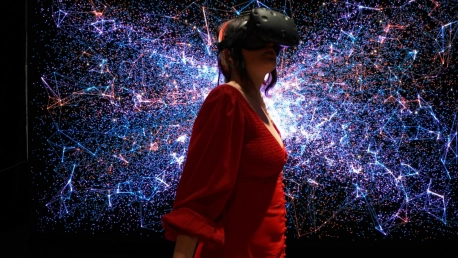The hospitality sector is evolving rapidly, largely thanks to technological advancements and new consumer demands. Technologies like Augmented Reality (AR) and Virtual Reality (VR) are particularly influential, offering revolutionary ways to enhance the guest experience. These tools are no longer just exciting possibilities for the distant future; they’re practical implementations that can set hotels apart right now. AR and VR enable immersive experiences that were once thought to be the stuff of science fiction, and they are increasingly being used to create unique, memorable interactions with guests. As these technologies become more mainstream, hotels that adopt them can offer unprecedented levels of customization and engagement, ensuring they remain competitive in an ever-changing industry landscape. It is crucial for hospitality businesses to leverage AR and VR to not only meet but exceed guest expectations, thereby securing their place in the market and charting a course for future success.
Enhancing Guest Engagement with AR and VR
Virtual Previews and Tours
The advent of AR and VR has opened up new possibilities for guests to interact with hotel offerings before they even set foot in the lobby. With VR, potential customers can take virtual tours of the hotel rooms, amenities, and surroundings, providing them with a compelling visual context that can influence their booking decisions. This level of interactivity allows guests to acquaint themselves with the property, fostering a sense of familiarity and confidence in their choice of accommodation.Moreover, AR allows for a more dynamic exploration of the hotel’s services. For instance, by pointing their smartphone at a printed hotel brochure, users can see immersive 3D visualizations of the rooms or amenities pop up on their screen. This engaging and informative experience can increase customer satisfaction by reducing the discrepancy between expectations and reality, thus leading to more confident bookings and potentially reducing cancellation rates.
Interactive In-Stay Experiences
Once guests have checked into their hotel, AR can further enrich their stay. Interactive hotel rooms could offer AR overlays that provide information about the hotel’s history, details about the art pieces displayed, or instructions on how to use room amenities. Such interactive experiences not only engage guests but also reduce the need for conventional, less interactive information sources like brochures or guest service booklets.On the other hand, VR can enhance in-room entertainment options by offering virtual travel experiences. For instance, guests might be able to don a VR headset and ‘visit’ a local attraction, getting a preview that could inform their plans for the next day. This application of VR serves not just as entertainment, but as a practical tool for guests planning their itinerary.
Improving Service Offerings Through Personalized AR/VR Features
Personalization with Beacon Technology
Beacon technology, powered by Bluetooth Low Energy (BLE), offers hotel guests a highly personalized and convenient experience. As guests move around the hotel, their location can activate unique content on their smartphones, such as AR for easy navigation. This tech helps visitors find their way to various points of interest like their rooms or hotel facilities.Additionally, it turns guests’ phones into digital keys, simplifying the check-in process and access to amenities. Hotels can use these beacons to push contextual promotions and information, creating opportunities for up-selling. By providing targeted content and simplifying navigation, hotels enhance the guest experience while potentially increasing revenue through strategic marketing. This smart integration of technology fosters an impressive, seamless hotel stay.
Language Accessibility and Inclusivity
Incorporating AR and VR into the hospitality industry serves as a powerful tool to bridge language gaps, greatly benefiting international guests. With AR, for instance, guests can scan signs or menus with their device to see instant translations, eliminating misunderstandings. VR offerings, complementarily, can feature various language settings, ensuring every user has access to comprehensible content.Personalized language support via AR and VR not only minimizes communication hurdles but also promotes a sense of ease and welcome among guests. The hospitality sector, by integrating these innovative solutions, opens doors to a broader audience. Customized experiences afforded by these technologies can significantly elevate guest satisfaction, making their stay more enjoyable and hassle-free, regardless of their language proficiency. This move towards inclusivity through tech ultimately enriches the hospitality experience, making it universally accessible and more competitive in the global market.









